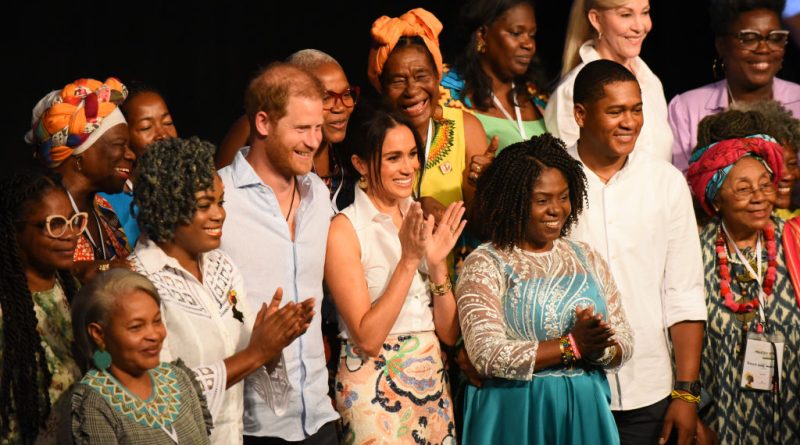Meghan Markle And Prince Harry Meet Afro-Colombian Leaders, Visit The First Town For Africans In The Americas And More During Trip To Country
Meghan Markle and her husband, Prince Harry, recently made their first visit to Colombia, and it’s safe to say the trip was unforgettable.
On Thursday, the Duke and Duchess of Sussex began their tour in Cali, Colombia, meeting with the country’s first Black vice president, Francia Márquez, who had invited them. According to the New York Post, Meghan showcased her impressive dance moves alongside Harry during an engagement at the Centro Nacional de las Artes Delia Zapata Olivella, marking the first of several outings for the couple.
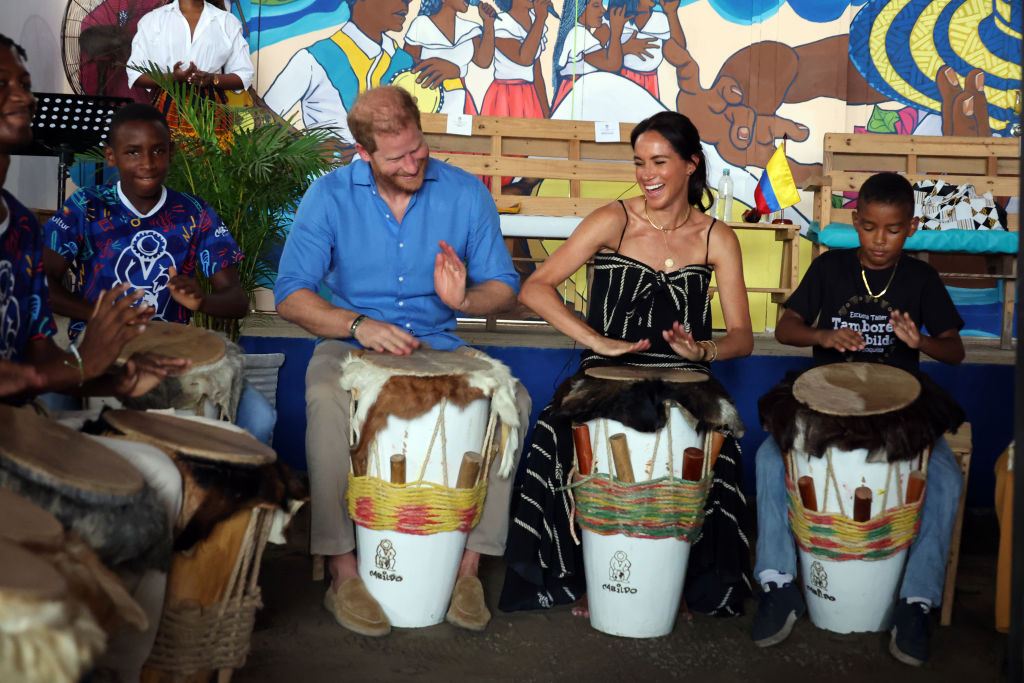
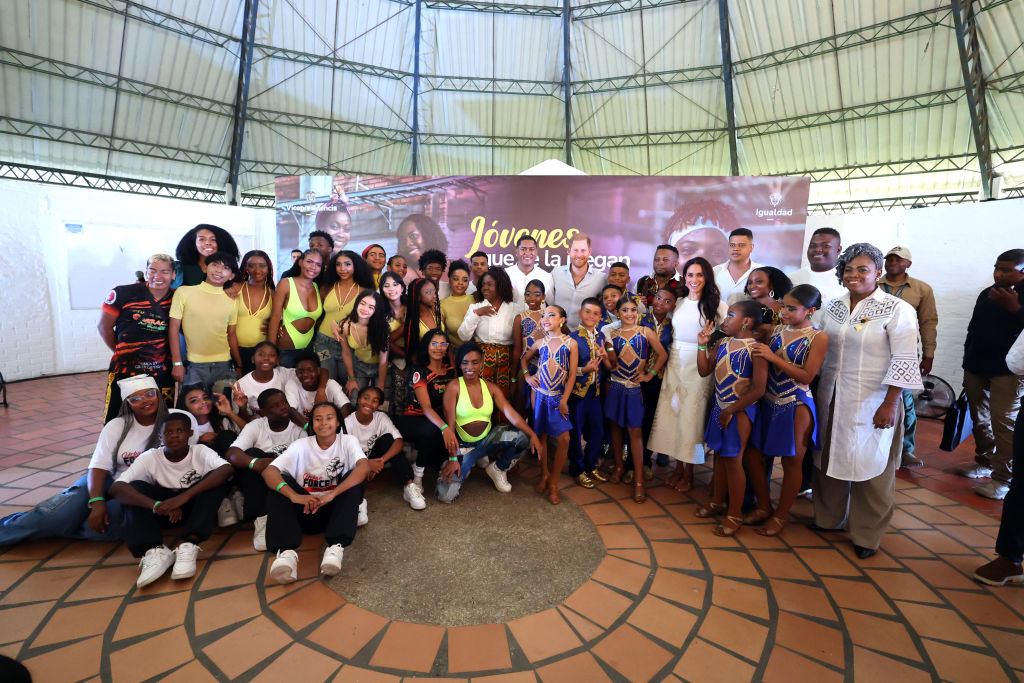
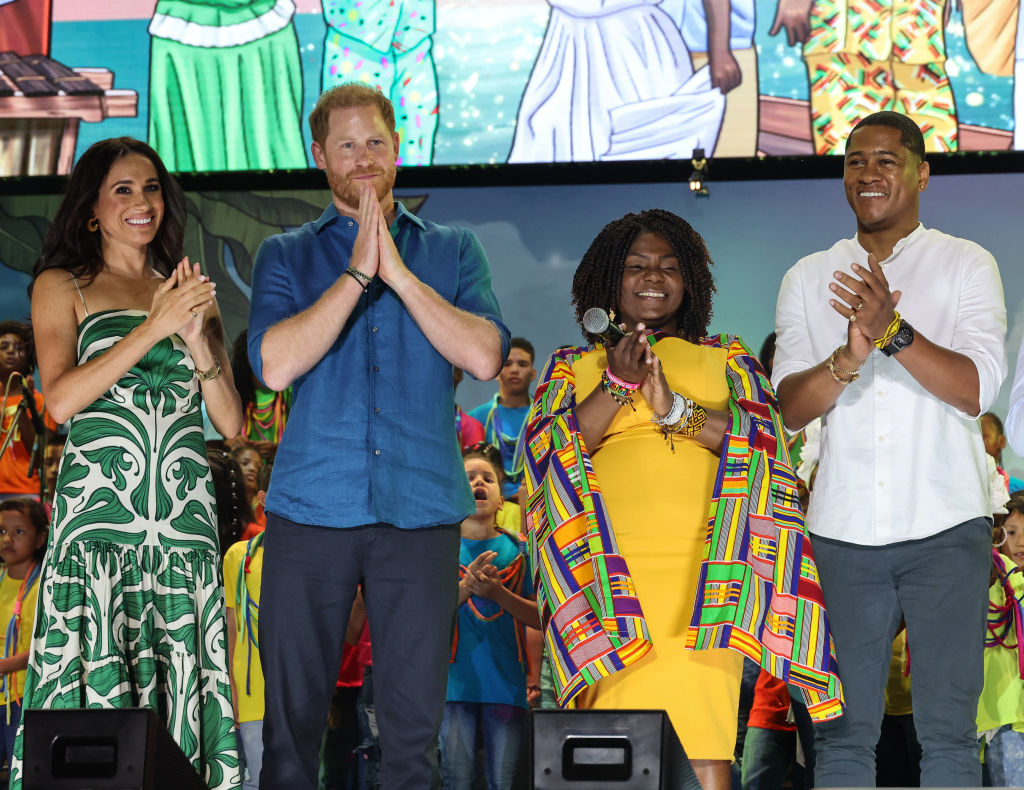
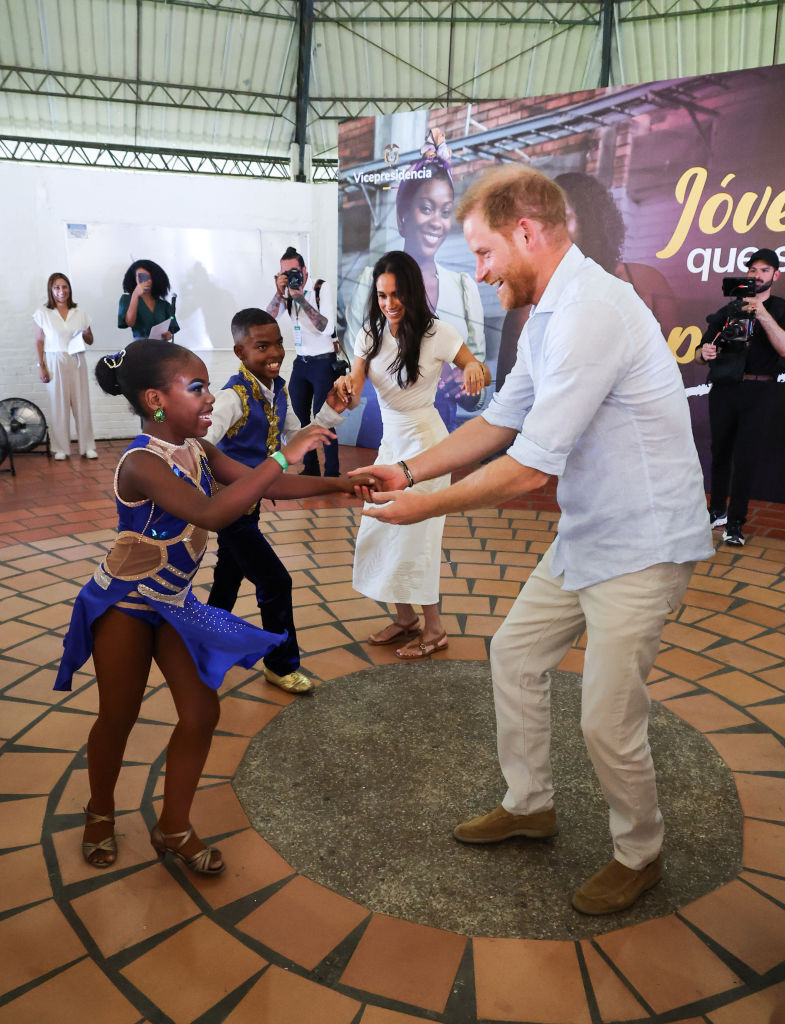
On Friday, they visited a school in downtown Bogotá where students gave a special performance prepared for the royals. Meghan bonded with one boy who reminded her of her 3-year-old son, Archie.
“You’re the same age as my son, Archie!” she remarked in Spanish to the young boy after he revealed his age, per the Post.
According to The Associated Press, their four-day visit concluded on Sunday with an event featuring Afro-Colombian leaders highlighting social and cultural issues, primarily focusing on challenges Black women faced in their communities.
Meghan, 43, and Harry, 39, sat in the front row at the Municipal Theatre for the “Afro Women and Power” forum. They were immersed in the cultural sounds of various instruments as they listened to prominent Black leaders discuss several important topics, including women and politics.
“I can feel this embrace from Colombia. It is incredible, thank you very much,” Meghan said to the crowd in Spanish, revealing that she learned the language 20 years ago, according to the AP.
Meghan also emphasized teaching young girls and women how to use their voices to make a difference.
“I was very, very fortunate at a young age to feel as though my voice was being heard, and I think that is a luxury that a lot of young girls and women aren’t often afforded,” she said, according to People, recalling how she wrote a letter at age 11 to have the language in a commercial changed to be less sexist.
“For us and the work that we do with the Archewell Foundation, certainly the work that we do as parents and that I do as a mother, is ensuring that young girls feel as though their voices are being heard and also that young boys are being raised to listen and to hear those young women as well,” she added.

